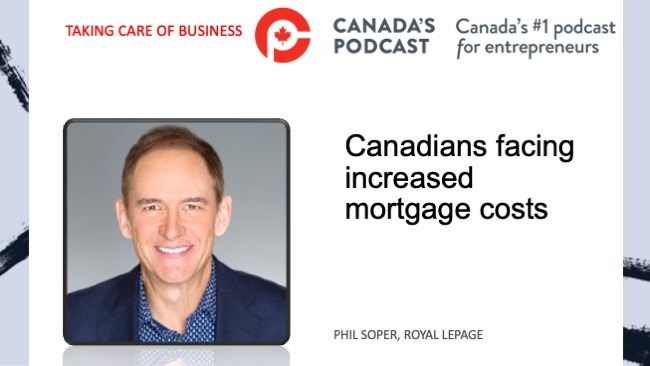The Consumer Price Index (CPI) rose 3.3% year over year in July, following a 2.8% increase in June. Acceleration in headline consumer inflation was mainly attributable to a base-year effect in gasoline prices, as a large monthly decline in July 2022 (-9.2%) is no longer impacting the 12-month movement. Excluding gasoline, the CPI rose 4.1%, edging up from 4.0% in June, reported Statistics Canada on Tuesday.

cottonbro studio
“Electricity prices rose significantly in Alberta, increasing by 127.8% in July on a year-over-year basis. Excluding energy, the CPI decelerated to 4.2% after a 4.4% increase in June,” said the federal agency.
“The mortgage interest cost index (+30.6%) posted another record year-over-year gain and remained the largest contributor to headline inflation. The all-items excluding mortgage interest cost index rose 2.4% in July.
“On a monthly basis, the CPI rose 0.6% in July, following a 0.1% gain in June, largely a result of higher monthly prices for travel tours, with July being a peak travel month. On a seasonally adjusted monthly basis, the CPI rose 0.5%.”
On a year-over-year basis, energy prices fell less in July (-8.2%) compared with June (-14.6%), it said.
“Prices for gasoline fell 12.9% year over year in July after a 21.6% decline in June. This was the result of a base-year effect, with prices remaining nearly unchanged on a month-over-month basis in July 2023 (+0.9%) compared with a 9.2% monthly decline in July 2022, when there were concerns of a slowing global economy,” said the report.
“While prices for groceries remained elevated, they grew at a slower pace year over year, rising 8.5% in July after a 9.1% increase in June. Slower price growth was due mainly to prices for fresh fruit and, to a lesser extent, bakery products. Prices for fresh fruit rose 4.1% in July, following a 10.4% increase in June. The deceleration was driven by the largest month-over-month decline (-6.5%) since February 2008. This decline was largely a result of lower monthly prices for grapes (-40.9%) and oranges (-1.8%). Bakery products cost 9.8% more year over year in July, following a 12.9% increase in June.”
Katherine Judge, an economist with CIBC Capital Markets, said it wasn’t good news on the inflation front in July for Canadians, as the pace of price increases accelerated to 3.3% y/y, from 2.8% in the prior month, leaving the pace well above the consensus expectation of 3.0%.
“While base effects tied to a large drop in gasoline prices from a year ago falling out of the calculation contributed to the acceleration, prices excluding food and energy rose by a strong 0.3% in seasonally-adjusted terms, although that included a jump in shelter prices tied to higher mortgage interest costs that move mechanically with the overnight rate. The Bank of Canada’s preferred core measures, CPI-trim and median, at 3.6% y/y and 3.7% y/y, respectively, were in line with consensus expectations. Overall, the strength in the underlying core components leaves our forecast for a final 25bp hike from the BoC in September in place,” she said.
Leslie Preston, Managing Director & Senior Economist with TD Economics, said although headline inflation moving back above to 3% is likely to catch some attention, it is what’s going on under the hood that is more concerning for the Bank of Canada.
“The BoC’s median and trim inflation measures continued to make progress in July, but at a glacial pace. Underlying inflation remains a long way from the 2% goal,” she said.
“Domestic demand in Canada’s economy continues to hum along, and as a result we expect progress on inflation to remain disappointing through the remainder of the year. This is pushing up expectations that the BoC may pursue another rate hike in the fall months as it gathers more information on the jobs market and overall inflation. We will hear more on the Bank’s thinking when the deliberations from the July decision are released on Wednesday.”
There’s no sense sugar coating this report—it is not a good report for the Bank of Canada, said Douglas Porter, Chief Economist with BMO Economics.
“While the Bank had anticipated a back-up in headline inflation in their latest forecast, July’s result is already at their call for all of Q3 (3.3%), and the August reading is almost certainly set to be even higher. The modest slowing in core CPI is a thin silver lining for policymakers in an otherwise strong CPI report. We still believe that with the recent upswing in the unemployment rate and clear signs of cooler spending that the BoC would prefer to move to the sidelines in September and give prior hikes time to work, but the inflation figures will make it a tougher call. (One of the key reasons the Bank came back off the sidelines was after a sour reading for April CPI.) Prior to the decision, we’ll get plenty of signs of how growth held up in the summer (including the Q2 GDP release on Sep 1) which will help shape the decision,” he said.

Mario Toneguzzi
Mario Toneguzzi is Managing Editor of Canada’s Podcast. He has more than 40 years of experience as a daily newspaper writer, columnist, and editor. He was named in 2021 as one of the Top 10 Business Journalists in the World by PR News – the only Canadian to make the list)
About Us
Canada’s Podcast is the number one podcast in Canada for entrepreneurs and business owners. Established in 2016, the podcast network has interviewed over 600 Canadian entrepreneurs from coast-to-coast.
With hosts in each province, entrepreneurs have a local and national format to tell their stories, talk about their journey and provide inspiration for anyone starting their entrepreneurial journey and well- established founders.
The commitment to a grass roots approach has built a loyal audience on all our social channels and YouTube – 500,000+ lifetime YouTube views, 200,000 + audio downloads, 35,000 + average monthly social impressions, 10,000 + engaged social followers and 35,000 newsletter subscribers. Canada’s Podcast is proud to provide a local, national and international presence for Canadian entrepreneurs to build their brand and tell their story.





